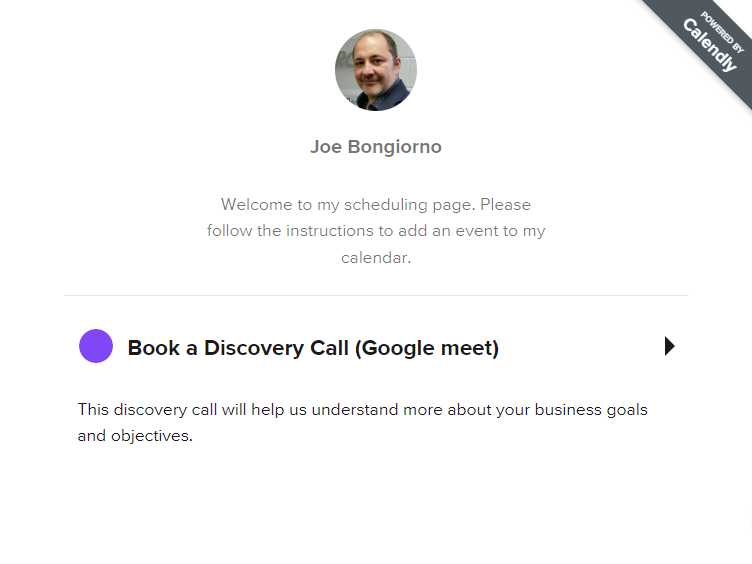Get The Power of Canada’s Most Experienced
DIGITAL MARKETING AGENCY & WEBSITE DESIGN COMPANY
BOOK A FREE 30-MINUTE STRATEGY SESSIONGrowing a business can be Difficult
While there are many paths to marketing success, certain core principles remain constant in any successful business advertising or growth strategy. The most important of these is building positive relationships with customers, partners, and employees alike. It’s also important to focus on creating a long-term vision that both aligns with short-term goals and fosters innovative solutions. To ensure sustainability, businesses must prioritize and continuously adapt to market trends. With MEDIAFORCE providing the right kind of marketing planning, platform and effort, businesses can achieve sustainable growth over time.
We have over 25 years experience in growing businesses like yours. Over the last 2 decades we have grown using the very techniques, strategies and channels used to ensure our clients can rest easy, knowing that we’ve got this for them.
Take the guesswork out of growing your business.
Case Study
The outcome:
The Ottawa Facial Surgery and Cosmetic Centre was able to drive up conversions both online and offline.
A TRUSTED DIGITAL MARKETING AGENCY SINCE 1996
SEO ANALYSIS TOOL
How Does Your Site Score ?
1
SEO
Check your website SEO to maximize organic search & SEO marketing
2
UX DESIGN
Check your website usability to optimize user experience
3
PERFORMANCE
Check website performance to optimize load speed
4
WEB SECURITY
Check your website security to maximize website visitors
5
SOCIAL MEDIA
Check your social media to expand your audience and reach
Build Your Brand
We partner with businesses in a variety of industries around the world.
What Our Clients Are Saying
Don't take our word for it. Read some of our reviews below.
FAQ’s
Questions? We have answers…
How long have you been in business?
20 years+ has given us the time to understand internet marketing and how it directly relates to a company’s ability to not only grow, but last. With over 20 years in the digital marketing industry, countless testimonials, Google reviews, video reviews, case studies and more we are a trusted source of digital marketing expertise for businesses in North America.
What awards have you won?
We have won a number of awards including Top SEO Agency in Canada, #1 Website design Agency Ottawa, Top PPC Agency in British Columbia and more. With over 20 years in the digital marketing industry, countless testimonials, Google reviews, video reviews, case studies and more, we are a trusted source of digital marketing expertise for businesses in North America.
What is your pricing?
Our pricing varies from one time engagements like website design to monthly services like SEO or Google ads management. Because every business is at a different stage and has different goals and objectives we have not developed packages. Book a quick discovery meeting and we can review your objectives and provided some example pricing.
Are your teams in Canada?
Our teams are located in Toronto, Ottawa and London ON. With 3 dedicated in-house marketing teams (SEO, PPC, Social) an award winning dedicated website design team and dedicated account managers making it all happen, we have the talent and disciplines to help you achieve your goals.
Can you get us more traffic?
Yes. More traffic is easy. More importantly, we get our clients valuable traffic. Traffic that is actually relevant and will convert at a higher percentage. How do we do this? Many different ways but it all starts with an audit and keyword research. Phase II moves into website design and conversion optimization. Your design, call of action, offers, bounce rate and other factors will tell us a lot about what we need to do.
Are you a full service agency?
We exist to help our clients succeed. Part of that is making it easy. We will assist in access to channels or platforms, we do all the keyword research, all the content and ad writing and all the imagery for display ads. We will also assist in email and tech support, website security and anything else we feel is critical for success. The last marketing agency you’ll need.
In the digital age, online presence is crucial for businesses to succeed. However, creating and maintaining an online presence can be challenging, which is where a digital marketing agency like MEDIAFORCE comes in. Digital marketing agencies like MEDIAFORCE offer a range of services including SEM that help businesses establish and grow their online presence including lead generation.
One of the primary services provided by digital marketing agencies is search engine optimization (SEO). SEO is the process of optimizing a website to rank higher in search engine results pages. This service includes keyword research, on-page optimization, link building, and content creation.
Another service offered by digital marketing agencies is pay-per-click (PPC) or paid search advertising. PPC advertising involves placing ads on search engines or social media platforms and only paying when someone clicks on the ad. Digital marketing agencies like MEDIAFORCE can help businesses create and manage PPC campaigns to get the most out of their advertising budget.
Social media marketing is another service provided by digital marketing agencies. Social media platforms have become a popular way for businesses to connect with their audience, and digital marketing agencies can help businesses create and manage social media campaigns to increase engagement and build brand awareness.
Content marketing is also a service offered by digital marketing agencies. Content marketing involves creating valuable and relevant content to attract and retain a target audience. Digital marketing agencies can help businesses create content, distribute it, and measure its effectiveness.
Email marketing is another service provided by digital marketing agencies. Email marketing involves sending targeted messages to a list of subscribers to promote a product or service. Digital marketing agencies can help businesses create effective email campaigns and measure their success through open and click-through rates.
Conversion rate optimization (CRO) is another important service offered by digital marketing agencies like MEDIAFORCE. CRO is the process of optimizing a website or landing page to increase the percentage of visitors who take a desired action, such as making a purchase or filling out a form. This service includes A/B testing, user experience analysis, and data-driven optimization techniques to improve conversion rates.
In conclusion, a digital marketing agency like MEDIAFORCE provides a wide range of services to help businesses establish and grow their online presence. From SEO to social media marketing, content creation to email marketing, and CRO, a digital marketing agency can help businesses achieve their marketing goals and drive revenue growth. If you are looking to get started with a digital marketing agency, reach out to a reputable agency to kick start your online marketing strategy.
In today’s digital age, a strong online presence is essential for the growth and success of any business. A digital marketing agency like MEDIAFORCE can help you create and implement effective strategies to increase your brand visibility, drive traffic to your website, and generate leads. But with so many options out there, how do you choose the right one?
What is a digital marketing agency?
A digital marketing agency is a company that provides strategic and creative services to help businesses promote their products or services online. These agencies use various digital channels such as social media, email marketing, search engine optimization (SEO), pay-per-click advertising (PPC), and analytics to enhance the visibility of a brand.
Digital marketing agencies provide valuable insights through analytics to help clients make data-driven decisions.
Digital marketing agencies offer many benefits for businesses including increased brand awareness and improved customer engagement. They can also provide valuable insights through analytics that enable clients to make data-driven decisions. Whether it’s copywriting or branding, digital marketing agencies in Canada are equipped with the necessary skills to help clients achieve their goals in an ever-evolving landscape of asset digital communications.
Services provided
Our digital marketing agency offers a range of services to help businesses grow their online presence. Our search engine optimization (SEO) strategies are designed to increase website traffic and improve rankings on Google. We also provide pay-per-click advertising (PPC) campaigns that drive leads and conversions.
Our email marketing services can help you reach your target audience with personalized messages, while our social media management team will create engaging content for your brand across various platforms. Finally, our content marketing offerings include copywriting, analytics and branding – all geared towards enhancing engagement rates on the web. With asset digital communications at the core of what we do best in Canada, trust us as one of the top rated agencies in creating results-driven solutions for both brand & mortar storefronts!
Benefits of a digital marketing agency
Accessing the expertise and experience of a digital marketing agency can greatly benefit businesses. These agencies have teams of professionals who specialize in different areas like branding, copywriting, advertising, analytics and asset digital communications. Compared to hiring an in-house team for all these tasks, it is more cost-effective to work with an agency like MEDIAFORCE that has everything under one roof.
Working with a digital marketing agency also saves time and resources for business owners or teams. Instead of spending hours researching and learning about various strategies, businesses can rely on their trusted agency to guide them through the process. Additionally, agencies have access to tools that help track and analyze results effectively so they can make data-driven decisions when optimizing campaigns. Overall, partnering with a reputable digital marketing agency like MEDIAFORCE proves extremely beneficial for any business looking to grow its online presence while focusing on its core competencies at the same time.
How to choose the right digital marketing agency for your business?
Choosing the right digital marketing agency for your business can be a daunting task, but it doesn’t have to be. When looking for an agency, consider their experience and expertise in the industry. Look into their past projects and ask about the strategies they use to achieve results.
Communication is key when working with an agency, so make sure they have clear lines of communication and provide regular reporting on your campaigns. Additionally, pricing should be transparent and fit within your budget without sacrificing quality. Lastly, take a look at their client portfolio and read testimonials to determine if they are a good fit for your specific needs.
Experience and expertise
With years of experience in digital marketing, we have an in-depth knowledge of SEO strategy and implementation. Our team has a proven track record in driving website traffic and improving conversion rates, giving our clients the results they need to succeed online. In addition to SEO, we bring expertise in social media marketing and Google ads PPC advertising, which allows us to create comprehensive campaigns that reach your target audience across multiple channels.
Our focus on data-driven strategies ensures that every decision we make is based on concrete insights into your audience’s behavior and preferences. By combining this approach with our deep understanding of digital marketing best practices, we can help you achieve your business goals efficiently and effectively. Whether you’re looking for increased brand awareness or higher sales numbers, our team has the expertise needed to drive real results for your business.
Communication and reporting
Our digital marketing agency understands the importance of communication and reporting when working with clients. That’s why we provide regular updates on campaign performance through detailed reports, ensuring our clients are always in the loop.
In addition to this, we have clear communication channels established for easy collaboration with our clients. We believe that a strong partnership is built on effective communication and transparency. Our dedicated account managers are available to ensure seamless communication throughout every step of the process, providing personalized attention to each client’s unique needs and goals.
Pricing and budget
Our digital marketing agency offers transparent pricing structures with no hidden costs or fees. We believe in honesty and integrity when it comes to our services, which is why we make sure our clients know exactly what they are paying for upfront.
We also offer flexible payment plans to accommodate various budgets. At our agency, we understand that not all businesses have the same budget for their digital marketing needs, which is why we work with each client individually to come up with a payment plan that works best for them. Additionally, customizable packages cater to specific business needs so you can get the most out of your investment in digital marketing efforts.
Client portfolio and testimonials
Our digital marketing agency boasts a diverse client base across different industries. From healthcare to construction, we have helped businesses of all sizes reach their goals through innovative and tailored solutions. Our glowing reviews from satisfied clients showcase the success of our campaigns, with many achieving measurable results that exceeded expectations. Through case studies, we demonstrate how our agency can help businesses increase brand awareness, drive website traffic and conversions, and ultimately boost revenue.
What services do I need?
This really depends on your current situation. After a thorough audit reconciled against your objectives we will be able to confidently tell you exactly the first steps and what channels need to be utilized, further leveraged, optimized or cancelled. As an example, Google ads will get you short term performance and SEO will get you long term performance.
Why choose our digital marketing agency?
Our digital marketing agency is composed of a team of experts with years of experience in the field. We specialize in crafting tailored campaigns that target specific audiences, maximize engagement, and ultimately drive conversions. Our deep understanding of SEO strategies ensures your brand’s online presence remains competitive, constantly adapting to changes in search engine algorithms.
In addition to our expertise, we take a personalized and comprehensive approach to every client’s needs. Our services include everything from social media management and content creation to email marketing and PPC advertising. With us as your partner, you can be confident that your brand will receive the attention it deserves while standing out among its competitors.
Our team of experts
Our team of experts comprises highly qualified individuals with numerous certifications in digital marketing. They are skilled in various industries, which gives them a deep understanding of the different sectors they work with. Their experience enables them to provide tailored solutions that meet our clients’ unique needs while remaining efficient and effective.
Our team takes a collaborative and creative approach to problem-solving, ensuring that every project is approached from multiple perspectives. This helps us provide innovative solutions that deliver results for our clients consistently.
Our services and approach
At MEDIAFORCE, we take a personalized approach to every client’s unique needs. Our customized strategies are tailored to each business, ensuring maximum impact and success. We rely on data-driven decision-making processes that allow us to identify the best opportunities for growth and optimize our efforts accordingly.
To achieve these goals, we use innovative tools and technologies that help us stay ahead of the curve in the ever-evolving world of digital marketing. From advanced analytics platforms to cutting-edge automation solutions, we leverage everything at our disposal to drive results for our clients.
- Customized strategies tailored to each client’s unique needs
- Data-driven decision-making processes
- Innovative tools and technologies used for maximum impact
Client success stories
Case studies showcasing measurable results achieved for past clients are a testament to our digital marketing agency’s success. Our team of experts has worked with various industries, delivering exceptional services that meet and exceed client expectations. Here are some notable results we’ve accomplished:
- Increased website traffic by 45% through SEO optimization
- Generated substantial increase in revenue within six months using targeted social media ads
- Boosted email open rates by 60% through personalized email campaigns
Awards won by the us as recognition for exceptional service showcase our dedication to excellence. We have been honored with numerous awards over the years, including:
- Clutch top B2B agency
- Top SEO Agency Award from Clutch.co
- Google Partner Badge for outstanding AdWords performance
What is data driven marketing?
Data-driven marketing relies on the strategic use of data to understand customer behavior and preferences. This allows companies to personalize their marketing efforts and improve the overall customer experience. By analyzing data such as purchasing patterns, demographics, and responses to various campaigns, businesses are able to tailor their messaging in order to better meet the needs and wants of their customers. Data-driven marketing can also help identify high-value segments within a larger target audience, allowing for more efficient allocation of resources and ultimately leading to increased sales and profitability. Overall, utilizing data effectively in marketing strategies can have a significant impact on a company’s success.
Do you measure and report results?
Yes. Our measurement model is critical to understanding success factors. Once we understand your objectives, your industry, your competitors and benchmark your current situation, we can then develop and digital road map, usually including; website optimization, updated tracking analytics, SEO and Google ads management to get you where you want to be. Regular weekly updates, monthly reporting calls and quarterly reviews are standard.
What should my budget be?
By having a clear understanding of your business objectives, industry, competitors, your current situation, budget, expectations and more we can clearly plan out a digital roadmap to get you where you want to be. Our digital marketing questionnaire can give us clear indicators of expectations and first steps.
Account manager, reporting and communications
Communications and reporting are as important as performance. During onboarding you will be assigned a senior partner (Mike Townshend) who will be your main point of contact. Regular weekly updates, monthly reporting calls and quarterly reviews are standard.
What is CRO?
Conversion rate optimization or CRO involves analyzing and testing elements on your website or app to improve the percentage of visitors who complete a desired action, such as making a purchase or signing up for a newsletter. This process involves thoroughly understanding your target audience’s wants and needs, and using that information to optimize important elements like calls-to-action and website layout. CRO tactics can also include A/B testing, where different versions of a web page are shown to different groups in order to determine which performs best. By constantly evaluating and improving these touchpoints, CRO can play a crucial role in moving prospects through the marketing funnel and ultimately converting them into customers.
How long does it take to see results?
While paid programs such as Google Ads or Facebook ads can produce results right away, other tactics such as search engine optimization (SEO) take a bit longer to see a return on investment. This patience is crucial, however, as building a strong foundation for organic search traffic can have lasting impacts on your online visibility and traffic in the long run. The reality is that SEO is a constant and ongoing process involving proper keyword research and website optimization, as well as regular content production and link building. These steps take time to show results, but the payoff is worth it in the end. So while it may be tempting to go for quick, paid solutions, also prioritize investing in long-term strategies like SEO for continued success in the digital realm.
What is the setup time?
Usually 3-4 weeks.
How do I get started?
Simply visit our discovery meeting page and fill out the form or book a meeting through calendly. A member of our team will be in touch, usually within 30min.
We’re obsessed with results
Join over 1000 satisfied clients
Get on our 90 day action plan to get more quality traffic AND conversions.
BOOK A ONE ON ONE CONVERSATION WITH A SPECIALIST BELOWLet’s book a short conversation to see if we’re a good fit.
We can create a strategic plan to get you where you want to be.










































